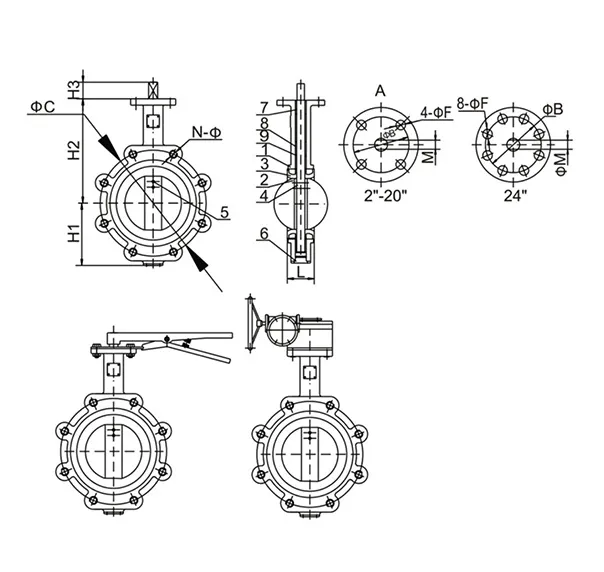ធ្នូ . 16, 2024 18:30 Back to list
water ball valve
Understanding Water Ball Valves Essential Components in Fluid Control
Water ball valves are vital instruments in the realm of fluid management, playing a crucial role in a variety of industrial, commercial, and residential applications. These valves are widely regarded for their reliability and efficiency in controlling the flow of liquids, particularly water. Unlike gate or globe valves, ball valves utilize a spherical disc, known as a ball, to regulate flow. The simplicity of their design coupled with the effectiveness in operation makes them the preferred choice in many scenarios.
What is a Water Ball Valve?
A water ball valve consists of a hollow, perforated sphere (the ball) that rotates within a valve body. This configuration allows for the open or closed position to be achieved with just a quarter turn of the handle. When the ball's hole aligns with the flow path, water flows freely. Conversely, when the ball is turned perpendicular to the flow, the valve is closed, stopping the flow of water. This straightforward operation allows for quick and easy control, which is essential in emergency situations or for routine maintenance.
Key Benefits of Water Ball Valves
1. Durability Water ball valves are constructed from robust materials such as brass, stainless steel, and plastic. This makes them resistant to corrosion and wear, ensuring a long service life even in demanding environments.
2. Minimal Flow Resistance When fully open, the ball valve provides a straight-through flow path, minimizing turbulence and resistance. This feature makes them highly efficient and helps reduce energy costs associated with pumping.
3. Leakage-Free Design The design of a ball valve inherently provides a tight seal, minimizing the risk of leaks. This is crucial, especially in water applications, where leaks can lead to costly water loss and damage.
water ball valve

4. Versatility Water ball valves can be used in various systems, including water supply lines, irrigation systems, and HVAC setups. They can handle both high-pressure and low-pressure conditions, making them suitable for a wide range of applications.
5. Ease of Maintenance Most ball valves require minimal maintenance and have fewer components compared to other types of valves. This attribute not only simplifies repairs but also reduces the overall cost of ownership.
Applications
Water ball valves find their applications in a multitude of settings. In residential plumbing systems, they are often used as shut-off valves for sinks, toilets, and outdoor hoses. Their reliability ensures that homeowners can quickly stop water flow in emergencies, preventing potential water damage.
In commercial settings, ball valves are commonly employed in heating systems, cooling systems, and water treatment facilities. Their ability to handle various media and high flow rates makes them suitable for industrial processes that involve water as a primary component.
Moreover, ball valves are integral in agricultural irrigation systems, where they help manage water supply efficiently, ensuring that crops receive the necessary amounts of water without wastage.
Conclusion
Water ball valves are pivotal components in the efficient management of fluid systems, particularly in water applications. Their durability, ease of operation, and effectiveness distinguish them from other valve types. Whether in residential, commercial, or industrial settings, the importance of reliable fluid control cannot be overstated. By incorporating ball valves into their designs, engineers and homeowners alike can ensure smooth operations and reduce the risk of leaks and inefficiencies. As technology advances, the design and functionality of water ball valves continue to evolve, promising even greater benefits in fluid control applications in the future.
Share